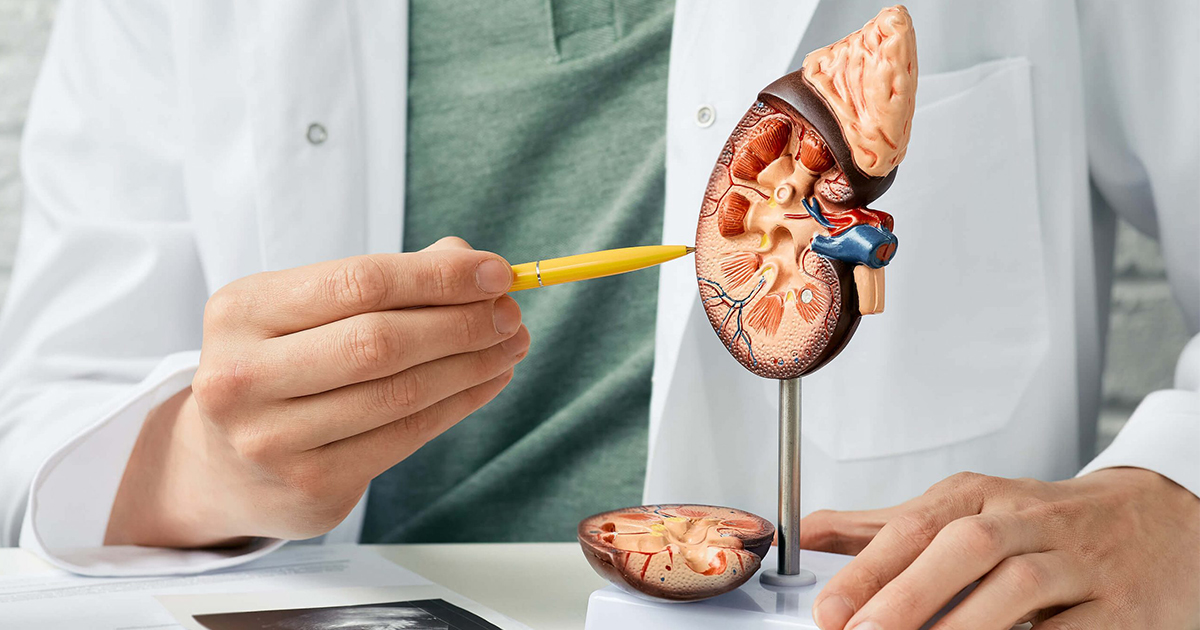The Threat of Kidney Stones to Kidney Health and Function

Kidney stones can be a painful and debilitating condition that not only affects your daily life but also poses a significant threat to your kidney health and overall kidney function. Understanding the risks associated with kidney stones and implementing preventive measures is vital to safeguarding the well-being of your kidneys.
The Threat of Kidney Stones to Kidney Health
1. Obstruction of Urinary Flow: Kidney stones are formed when certain substances in the urine, such as calcium, oxalate, and uric acid, crystalize and clump together. These stones can vary in size and shape and may obstruct the normal flow of urine. This obstruction can lead to increased pressure in the kidneys, potentially causing damage to the delicate kidney tissues and impairing their function.
2. Kidney Infections: When kidney stones obstruct the urinary tract, it creates a favorable environment for bacteria to thrive. This can result in urinary tract infections (UTIs) that can further damage the kidneys if left untreated. The presence of kidney stones can also hinder the effectiveness of antibiotics in treating UTIs, leading to recurrent or chronic infections.
3. Reduced Kidney Function: The presence of kidney stones can compromise the overall function of your kidneys. The obstruction caused by large stones or a buildup of smaller stones can impede the filtration process, impairing the kidneys’ ability to remove waste products and maintain the balance of essential substances in the body. Over time, this can result in a decline in kidney function and potentially lead to chronic kidney disease (CKD).
Tips for Kidney Stone Prevention
1. Stay Hydrated: One of the most crucial preventive measures is to stay well-hydrated. Drinking an adequate amount of water helps dilute the urine, reducing the concentration of minerals that can contribute to stone formation. Aim to drink 8 glasses of water per day, or more if you live in a hot climate or engage in intense physical activity.
2. Follow a Balanced Diet: Adopt a diet that is low in sodium, animal protein, and oxalate-rich foods. Excessive sodium intake can increase calcium excretion in the urine, while a high-protein diet can elevate the level of uric acid, both of which contribute to stone formation. Limit your consumption of processed foods, red meat, organ meats, and foods high in oxalates like spinach, rhubarb, and soy products.
3. Increase Citrus Fruit Consumption: Citrus fruits, such as lemons and oranges, contain citrate, which inhibits the formation of certain types of kidney stones. Consuming citrus fruits or adding their juice to your water can help increase urinary citrate levels and prevent stone formation.
4. Maintain a Healthy Weight: Obesity and excess weight can increase the risk of kidney stone formation. Maintain a healthy weight through regular exercise and a balanced diet to reduce the strain on your kidneys and lower the canes of stone development.
5. Limit Soda and Caffeine Intake: Carbonated beverages, especially those high in phosphoric acid, have been linked to an increased risk of kidney stone formation. Similarly, excessive caffeine consumption can lead to dehydration and promote stone formation. Opt for water, herbal tea, or natural fruit-infused water as your primary beverages.
6. Consult with a Healthcare Professional: If you are at a higher risk of kidney stones or have a history of stone formation, consult with a healthcare professional. They can assess your specific risk factors, provide personalized advice, and recommend appropriate preventive measures or medications if necessary.
Kidney stones pose a significant threat to kidney health and function. Their presence can lead to obstruction of urinary flow, kidney infections, and reduced kidney function. By implementing preventive measures such as staying hydrated, following a balanced diet, increasing citrus fruit consumption, maintaining a healthy weight, and limiting soda and caffeine intake, you can reduce the risk of kidney stone formation and protect your precious kidneys. Remember, regular check-ups and consultation with healthcare professionals are essential to monitor your kidney health and address any potential concerns promptly.
- * All research and clinical data should be used as reference purposes only, results may vary.




